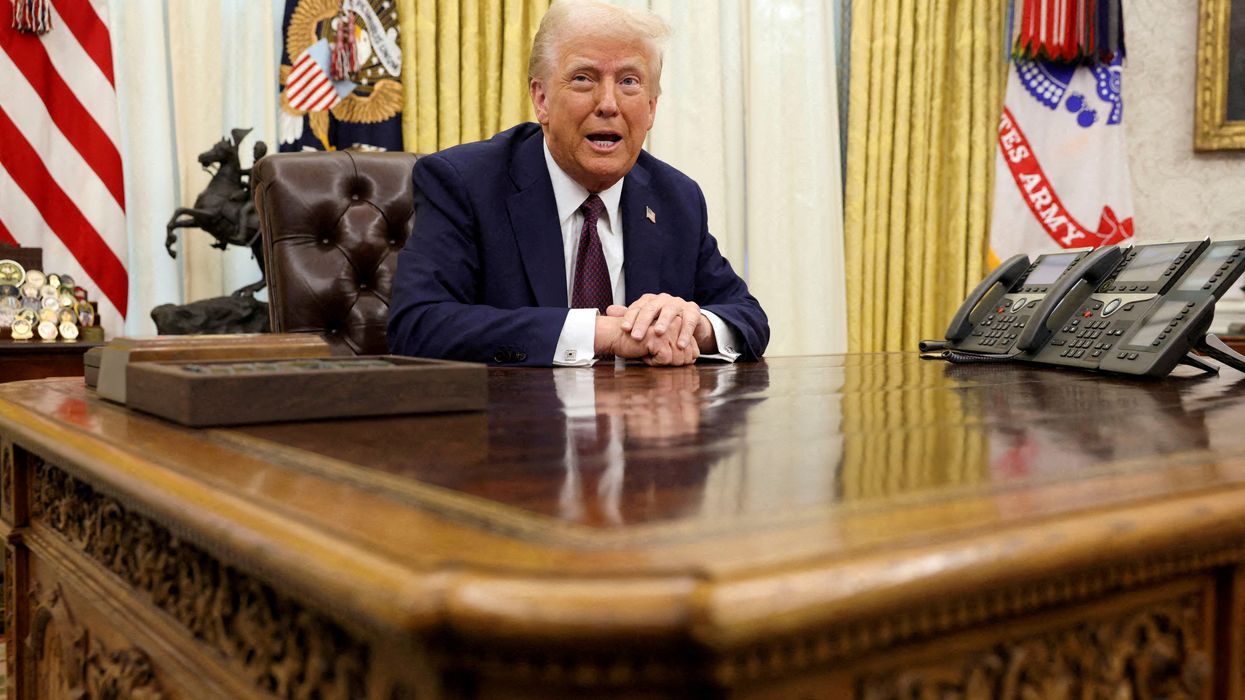President Donald Trump signed an executive order Tuesday that vastly expands his influence over the federal government. At the heart of the order is the unitary executive theory, a controversial idea that says the president has the sole authority over the Executive Branch. The order makes it so that Trump controls several independent agencies.
“The action is likely to face court challenges and test a once-fringe legal theory,” according to Politico. They later add: “many mainstream legal scholars still believe it is illegal.”
The theory has also come into question in the case of Trump's firings throughout the federal government, including watchdogs and the head of the Consumer Financial Protection Bureau.
READ MORE: 'Utter incompetence': Federal agency rehires crucial workers after 'accidentally' firing them — again
The agencies affected by Tuesday’s executive order include the Federal Communications Commission, the Federal Trade Commission and the Securities and Exchange Commission, all of which were set up by Congress to act at least semi-independently.
Project 2025 architect Russell Vought, Trump’s budget chief, is a champion of the unitary executive theory. The executive order places him as supervisor to these agencies, saying he will “establish performance standards and management objectives.”
“The unitary executive theory has always been a dangerous idea given the risk of presidential overreach and abuse of power,” Christopher Wright Durocher, vice president of policy and program at the American Constitution Society, wrote earlier this month. “And Trump is practicing a unitary executive on steroids, brazenly stepping on Congress’s constitutional power and daring a House and Senate controlled by his party to stop him. Congress can and should reclaim its role, and as litigants file suits, the federal judiciary can also weigh in. Without pushback from the other two branches of government, however, there’s no telling how hulking Trump’s unitary executive may become.”
“The most controversial aspect of the UET is the president’s removal power,” according to the Legal Information Institute at Cornell Law School. The theory says that the president can remove subordinate appointees — multiple presidents have used this theory to remove executive officials who the previous president appointed.
READ MORE: 'Congress can‘t do anything': Top GOP senator says he has no power to stop Musk and DOGE
The 2021 Supreme Court case Collins v. Yellen established that the president is able to remove agency officials who were appointed by Congress at will. This decision allowed President Joe Biden to remove Federal Housing Finance Agency Director Mark Calabria, a Trump appointee. He later fired Trump appointee Andrew Saul, who was Social Security commissioner.
“Democrats may have rejoiced at President Biden’s decision to remove Trump holdover Andrew Saul as the Commissioner of the Social Security Administration. But they should think twice about the long-term effects of claiming a constitutional power to fire a commissioner appointed to a six-year term without invoking the statutory provision allowing for-cause removal,” Syracuse University College of Law professor David M. Driesen wrote at the time.
“The unitary executive theory, which embraces presidential removal of agency heads for political reasons, provides a pathway to autocracy,” he wrote. He added: “A President with autocratic tendencies can use just about any government power to reward his friends and punish his enemies. President Trump showed this on numerous occasions.”
"This is where the debate is: at what point does the kind of power that Trump wants and the way he exercises his power cross over from a constitutional vision about presidential power to an a-constitutional vision," Bob Bauer, a law professor at New York University and former White House counsel under President Barack Obama told ABC News.
READ MORE: GOP senator slammed after urging Trump work around law to 'make president's job easier'
"He's going to do an enormous amount of damage that the courts can't in all cases readily remediate," he added. "By the time he's finished emptying out some of these agencies and in some cases closing them, putting all that back together again is going to be very challenging."


